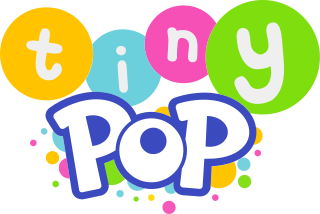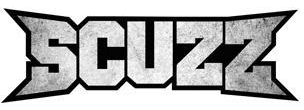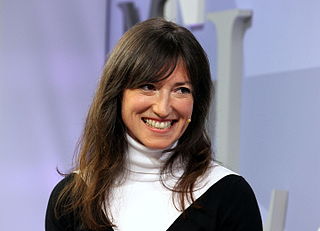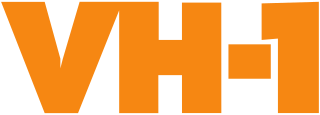
VH1 is an American basic cable television network based in New York City. It was created by Warner-Amex Satellite Entertainment, at the time a division of Warner Communications and the original owner of MTV, and launched on January 1, 1985, in the former space of Turner Broadcasting System's short-lived Cable Music Channel. The channel is currently owned by Paramount Global.

MTV was a 24-hour general entertainment channel specialising in music and youth culture programming which serves Australia and New Zealand. Paramount Networks UK & Australia headquartered in London with a local office at Network 10's headquarters in Sydney is responsible for marketing and advertising in Australia and New Zealand. The channel was replaced by MTV Global in August 2023.

The Music Factory (TMF) was an originally Dutch brand of television and radio channels operated focusing on pop music. It was similar to the American MTV which took over TMF in 2002.
VIVA was a German free-to-air music television channel, first broadcast on December 1, 1993. The channel was intended to compete against MTV Europe and was the first German-language music TV channel, while MTV was only broadcast in English until the introduction of MTV Germany in 1997. It was also supposed to focus more on German music and pop culture while MTV only broadcast anglophone music by artists mostly from North America, the United Kingdom, Ireland and Australia.

MTV Global is the international version of the American TV channel MTV as 24-hour music video and entertainment pay television network officially launched on 1 August 1987 as part of the worldwide MTV network.

Tiny Pop is a British digital service and was previously a free to air television channel, owned by Narrative Entertainment UK Limited. Broadcast on many of the major digital television platforms in the UK, Tiny Pop, which was launched on 8 September 2003 as Pop Plus, and shows, its target audience is children aged 7 and under. The station broadcasts principally animated content sourced from various distributors.

Scuzz was a British 24-hour rock and metal music television channel owned and operated by Sony Pictures Television. It was launched on 17 April 2003 and went on to be the highest-rated rock TV station on the Sky satellite platform, available in over 12 million homes in the UK and Ireland. The channel was abruptly closed on 15 November 2018.

MTV Rocks was a British pay television music channel that was operated by ViacomCBS Networks UK & Australia. Its programming consisted of 24-hour non-stop rock/alternative music.

Music Television Germany is a German language free-to-air television channel operated by Paramount Global. The channel launched on 7 March 1997 as MTV Central, as part of a regionalisation strategy by Paramount Global, then MTV Networks Europe.

"Maximum Overdrive" is a song by Belgian-Dutch Eurodance band 2 Unlimited, released in November 1993 by Byte, ZYX and PWL as the fourth single from their second album, No Limits! (1993). The song was written by band members Ray Slijngaard and Anita Dels with Phil Wilde and Filip Martens, while Wilde produced it with Jean-Paul De Coster. The UK release was the first UK single to maintain all the rap lyrics from Ray used in the European release. "Maximum Overdrive" reached number 15 on the UK Singles Chart, and was also a number-one hit in Finland and on the European Dance Radio Chart by Music & Media. Its accompanying music video was directed by David Betteridge and filmed in London.

MTV2 Pop was a German music channel. It launched on 1 May 2001, taking over the transponder left by the analogue service of MTV UK and Ireland when it closed down. It replaced VH-1 Germany. The channel mainly focused on Europop and eurodance music.

Charlotte Elisabeth Grace Roche is a British-German television presenter, author, producer, and actress. She is best-known for her 2009 novel Wetlands.

MTV Czech Republic was a 24-hour music and entertainment television channel that served the Czech Republic and Slovakia. The channel was launched on 29 November 2009 under a licensing agreement between MTV Networks Europe, a subsidiary of MTV Networks and CME, the owner of TV Nova.

VH-1 Deutschland was a localised German version of the Viacom channel VH1 that was on air from 1995 until 2001. The programme was operated by Me, Myself & Eye Entertainment GmbH, the former editorial office of Tele 5's predecessor musicbox, in cooperation with MTV Networks Europe.

MTV Classic was a British pay television music channel from Paramount Networks UK & Australia. The channel was launched in the United Kingdom and Ireland on 1 July 1999 as VH1 Classic.

MTV is a British pay television channel focusing on reality TV and music programming operated by Paramount Networks UK & Australia.

MTV Music is a British pay television channel operated by Paramount Networks UK & Australia. The brand was first launched in the UK and Ireland before launching in Australia, New Zealand, Italy, the Netherlands and Poland. Unlike other MTV Music channels, this channel offers subtitles on selected programmes.
VIVA was an Austrian free-to-air television channel launched 2012 as the localised feed of VIVA Germany. In June 2018, Viacom announced that it will shut down all Viva operations worldwide by 31 December 2018.

MTV OMG was a British pay television music channel operated by Paramount Networks UK & Australia. It launched on 1 March 2018, replacing free-to-air sister music channel Viva. The audience profile on Sky Media showed that the channel had a 60/40 viewer bias in favor of women. The channel aired its own weekly OMG Top 20 charts, which were chosen by the channel.

VIVA Plus was a German music television channel that went on air on 7 January 2002 at 13:00 based in Cologne, Germany. It was the successor to VIVA Zwei and was initially managed by VIVA Media AG and later by Viacom, based in Berlin, Germany. On 14 January 2007, the channel was discontinued and got replaced by Comedy Central Deutschland, which began broadcasting the following day.

















